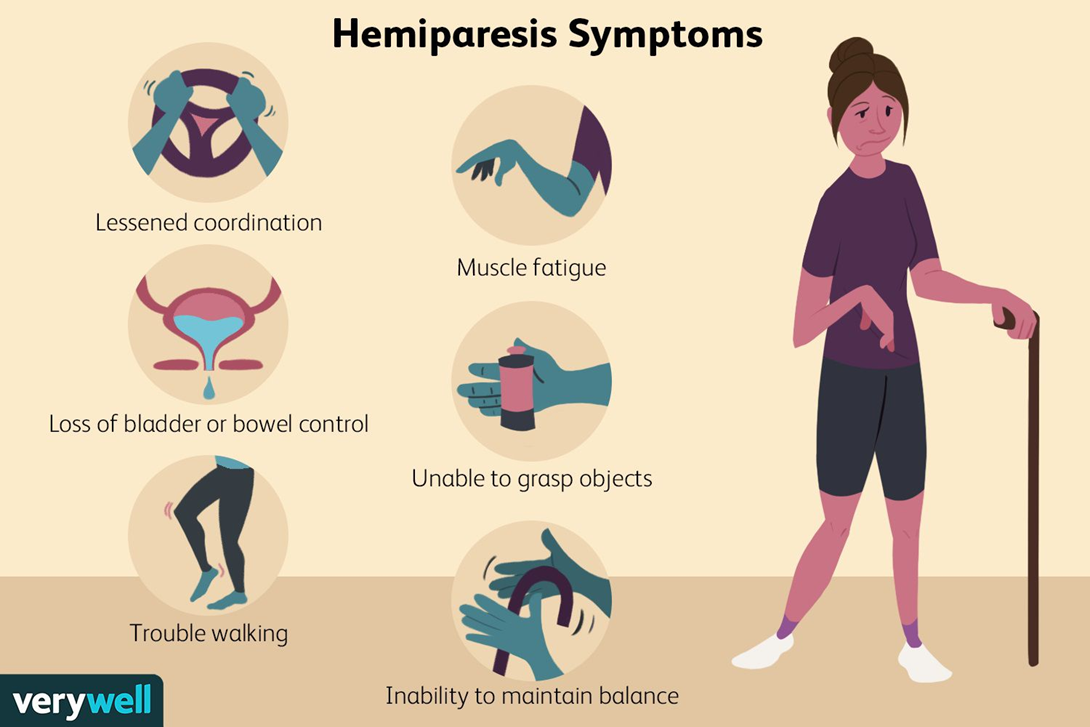A nurse in the emergency department is assessing a young adult client who was administered a hypotonic IV fluid bolus for rehydration after collapsing at an athletic event. Which of the following findings indicates the client is experiencing water intoxication?
Hypernatremia
Weak pulses
Muscle weakness
Exaggerated reflexes
The Correct Answer is C
Choice A reason: Hypernatremia is not a sign of water intoxication, but rather the opposite condition. Hypernatremia means high sodium levels in the blood, which can occur when the body loses more water than sodium, such as in dehydration, diabetes insipidus, or excessive salt intake. Water intoxication causes hyponatremia, which means low sodium levels in the blood, due to excessive water intake or retention.
Choice B reason: Weak pulses are not a specific sign of water intoxication, but rather a general sign of poor perfusion or circulation. Weak pulses can have many causes, such as hypotension, shock, heart failure, or peripheral vascular disease. Water intoxication can cause hypotension, but it can also cause hypertension, depending on the volume status of the client.
Choice C reason: Muscle weakness is a sign of water intoxication, as it reflects the effect of low sodium levels on the neuromuscular system. Sodium is essential for nerve and muscle function, as it helps generate electrical impulses and contractions. When sodium levels drop too low, the nerves and muscles become less responsive and weaker. Other signs of water intoxication affecting the nervous system include confusion, headache, seizures, and coma.
Choice D reason: Exaggerated reflexes are not a sign of water intoxication, but rather a sign of hyperreflexia, which is a condition of overactive reflexes. Hyperreflexia can have many causes, such as spinal cord injury, stroke, multiple sclerosis, or electrolyte imbalance. Water intoxication can cause electrolyte imbalance, but it usually leads to hyporeflexia, which is a condition of reduced or absent reflexes.

Nursing Test Bank
Naxlex Comprehensive Predictor Exams
Related Questions
Correct Answer is C
Explanation
Choice C reason: This statement shows that the client has understood the importance of vitamin D and calcium for bone health. Fortified milk, fatty fish, and cheese are good sources of both nutrients, which help to maintain bone density and prevent osteoporosis.
Choice A reason: This statement is incorrect, as vitamin A supplementation can have adverse effects on bone health. Excessive intake of vitamin A can increase the risk of fractures and reduce bone mineral density.
Choice B reason: This statement is partially correct, as calcium supplementation can help to meet the daily requirement of calcium for bone health. However, calcium alone is not enough, as vitamin D is also needed to facilitate the absorption of calcium and prevent its loss from the bones.
Choice D reason: This statement is irrelevant, as none of the foods mentioned are particularly beneficial for bone health. Orange juice, lean meats, and egg whites are good sources of vitamin C, protein, and biotin, respectively, but they do not provide significant amounts of vitamin D or calcium.
Correct Answer is B
Explanation
Choice A reason: Reducing caloric intake by 200 calories a day may not be enough to achieve significant weight loss for a client who is obese. The recommended daily calorie deficit for weight loss is 500 to 750 calories, which can result in a loss of 1 to 1.5 pounds per week¹.
Choice B reason: Losing 5 percent of body weight can improve glycemic control and reduce the need for glucose-lowering medications for a client who has type 2 diabetes. Studies have shown that weight loss of 5 to 10 percent can lower HbA1c levels by 0.5 to 1.0 percentage points².
Choice C reason: Exercising for 30 minutes three times a week may not be sufficient to lose 1 pound per week. The recommended amount of physical activity for weight loss is at least 150 minutes of moderate-intensity aerobic exercise per week, plus resistance training at least twice a week³.
Choice D reason: Drinking 16 ounces of apple juice is not advisable if the blood glucose level drops during exercise, as it can cause hyperglycemia. Apple juice contains about 48 grams of carbohydrates, which is equivalent to four servings of glucose tablets⁴. The recommended treatment for hypoglycemia is to consume 15 to 20 grams of fast-acting carbohydrates, such as glucose tablets, gel, or juice, and recheck the blood glucose level after 15 minutes⁵.
Whether you are a student looking to ace your exams or a practicing nurse seeking to enhance your expertise , our nursing education contents will empower you with the confidence and competence to make a difference in the lives of patients and become a respected leader in the healthcare field.
Visit Naxlex, invest in your future and unlock endless possibilities with our unparalleled nursing education contents today
Report Wrong Answer on the Current Question
Do you disagree with the answer? If yes, what is your expected answer? Explain.
Kindly be descriptive with the issue you are facing.
